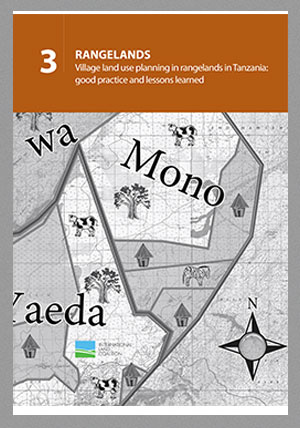Location
The International Land Coalition (ILC) is a coalition of civil society and intergovernmental organizations promoting secure and equitable access to and control over land for poor women and men through advocacy, dialogue and capacity building.
Resources
Displaying 166 - 170 of 258Village land use planning in rangelands in Tanzania: Good practice and lessons learned
Village land use planning in rangelands in Tanzania: good practice and lessons learned
This Issue Paper No.3 is part of the series Making Rangelands Secure, a learning initiative supported by ILC, IFAD, RECONCILE, IUCN-WISP and Procasur. The Making Rangelands Secure Initiative has been established by a group of organisations seeking to improve security of rights to rangelands. The initiative seeks to identify, communicate and build good practice on making rangelands secure for local rangeland users.
Reflections on 20 years of land-related development projects in Central America: 10 things you might not expect, and future directions
Drawing upon several sources of information and types of analysis, including literature reviews, field visits and rapid participatory assessments, this paper provides a critical assessment of land-related development policies and projects over the past two decades in Central America. Reflections on past land-related development policies and projects in Central America are based on their contributions to growth and poverty reduction.
Women’s land rights and gender justice in land governance: pillars in the promotion and protection of women’s human rights in rural areas
Across the developing world, rural women suffer widespread gender-based discrimination in laws, customs and practices cause severe inequalities in their ability to access, control, own and use land and limit their participation in decision-making at all levels of land governance.












